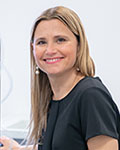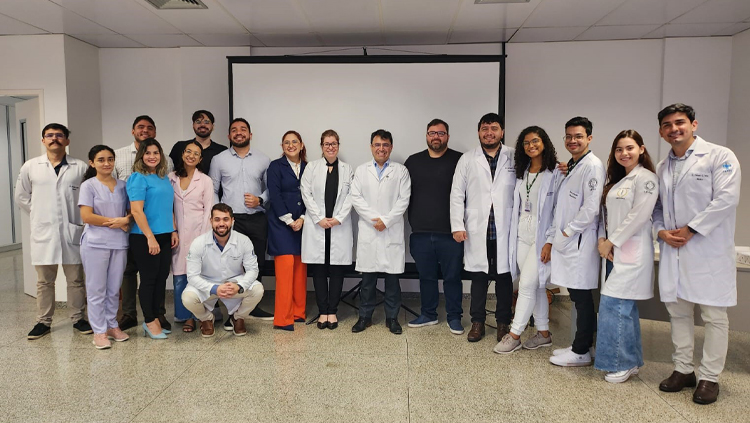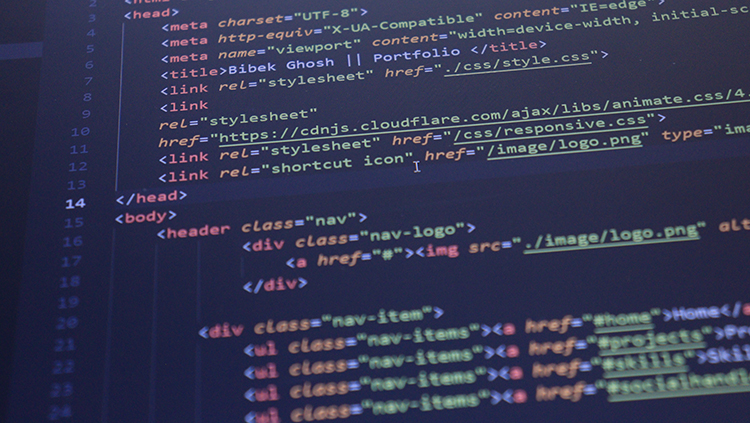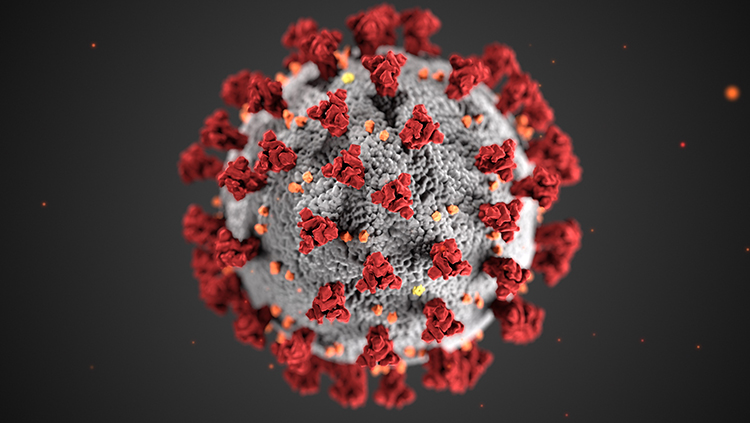Social media has profoundly changed the ways information is communicated and news can be manipulated by groups, aimed at spreading their opinions rather than scientifically verified data. Consequently, communication has become more difficult for researchers who had to modify the way they communicate in order to meet public attention.
During this online event, panelists will discuss and try to understand the context in which fake-news develops, the basis for behaviors associated with fake-news and the brain areas and neurotransmitters associated with those behaviors.
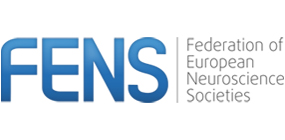 This webinar is a follow up of the in-person event organized at the FENS Forum 2022 on the same topic. As background, you are encouraged to watch ahead of the live webinar the recording of the in-person event. Watch the recording here or on YouTube.
This webinar is a follow up of the in-person event organized at the FENS Forum 2022 on the same topic. As background, you are encouraged to watch ahead of the live webinar the recording of the in-person event. Watch the recording here or on YouTube.
Speakers
Ciara Greene, PhD
Ciara Greene is an Associate Professor at University College Dublin, where she leads the Attention and Memory lab. She earned her BA in Psychology and PhD in Cognitive Neuroscience from Trinity College Dublin, and competed postdoctoral fellowships at the MRC Cognition and Brain Sciences Unit, Cambridge and imperial College London. Ciara is also a Fulbright Scholar. Her research interests include the effects of misinformation and “fake news” on cognition and behaviour. Her research is funded by the Irish Research Council and the Health Research Board of Ireland.
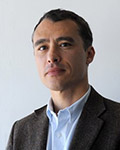
Andrea Grignolio, PhD
Andrea Grignolio teaches History of Medicine and Bioethics at V.-S. San Raffaele University Milan and at Interdep. Center for Research Ethics and Integrity of National Research Council (CNR). He studied at the Centre Cavaillès of 'École Normale Supérieure of Paris, Research and Post-doctoral Fellow at Boston University, Visiting Scholar at UC Berkeley, and Research Fellow at the University François Rabelais of Tours.
He is author of papers appeared on international journals and of the books Vaccines: “Are They Worth a Shot?” (Springer 2018); together with Cattaneo E., De Falco J., “Ogni giorno. Tra scienza e politica”, 2016 (Everyday. Between science and politics); with Beccaria G., “Scienza&Democrazia”, 2014 (Science & Democracy).
At CNR he is member of Scientific Secretariat of the Research Ethics and Bioethics Committee, scientific director of the Vaccine Hesitancy Forum and of the Research Integrity Training Unit; in 2021 he has been the coordinator of the G-20 Italy Policy Paper on a Global Health Literacy Alliance.
Maria Antonietta De Luca, PhD
Maria Antonietta De Luca is an Associate Professor of Pharmacology at the University of Cagliari (Italy) where she obtained her PhD in Pharmacology of Drug Abuse. She developed strong expertise in the fields of neurochemistry and behavioural pharmacology, with a major focus on the role of mesolimbic and mesocortical dopaminergic transmission in the origin of addiction. She has over 20 years of experience with in vivo microdialysis in rodents for monitoring brain monoamines following administration of drugs of abuse and natural rewards, and extensive knowledge of animal models of drug addiction with particular reference to the rewarding properties of cannabinoids, opioids, and Novel Psychoactive Substances (NPS).

Geert Ramakers, PhD
Geert Ramakers is associate professor at the department of Translational Neuroscience at the UMC Utrecht. He obtained his PhD degree in Utrecht (1995), did a postdoc in Utrecht (1995 – 1997) and Oslo at the department of Physiology (1998 – 2000). In 2000 he was appointed at the UMC Utrecht as assistant professor and in 2014 as associate professor at the department of Translational Neuroscience. His research focuses on cellular and synaptic plasticity; he wants to know how neurons integrate synaptic signals and convert these signals into output signals (action potentials). In addition to his research efforts, Geert is coordinator of the the neurotrack within the bachelor Biomedical Sciences, the master program Neuroscience and Cognition and the PhD program Clinical and Experimental Neuroscience. He is chair of the Educational Committee of the bachelor Biomedical Sciences at Utrecht University and former member of the Committee of Higher Education and Training of FENS.
Who can attend these webinars? This webinar is open access and registration is complimentary.
Will the webinars be available on-demand? Yes, all webinars will be available to watch on-demand after the live broadcast.
How do I access the conference on the live day? After registering, you will receive a confirmation email with the event link and the option to download calendar reminders.
What are the technology requirements for attending? These webinars are hosted on Zoom Webinar. Instructions for joining and participating in a webinar can be found here.
Can I ask the presenters questions? Yes! You can submit any questions before the webinar through the registration form. During the webinar, you can submit questions through the Q&A box.
I have other questions not answered here. Email digitallearning@sfn.org with any other questions.
Review SfN’s Code of Conduct, rules for virtual events in the Digital Learning Community Guidelines, and communications policies regarding dissemination of unpublished scientific data, listed below. SfN asks that conference attendees respect the sensitivity of information and data being presented that are not yet available to the public by following these guidelines:
- Do not capture or publicly share details of any unpublished data presented.
- If you are unsure whether data is unpublished, check with the presenter.
- Respect presenters' wishes if they indicate that the information presented is not to be shared.
Webinar Refund Policy
What is the cancellation/refund policy for webinars?
If SfN changes fundamental details of the webinar (date, time, or speakers), non-member registrants may request a registration refund. To request a refund, please email digitallearning@sfn.org at least 48 hours before the event. Otherwise, refunds are not provided. All webinars are complimentary to SfN members.
SfN webinars can be watched on-demand if someone is unable to attend the live broadcast.

 This webinar is a follow up of the in-person event organized at the FENS Forum 2022 on the same topic. As background, you are encouraged to watch ahead of the live webinar the recording of the in-person event. Watch the recording here or on YouTube.
This webinar is a follow up of the in-person event organized at the FENS Forum 2022 on the same topic. As background, you are encouraged to watch ahead of the live webinar the recording of the in-person event. Watch the recording here or on YouTube.

